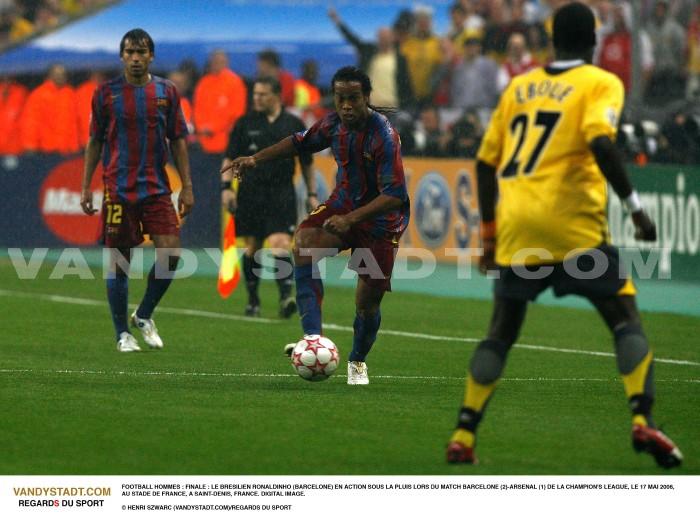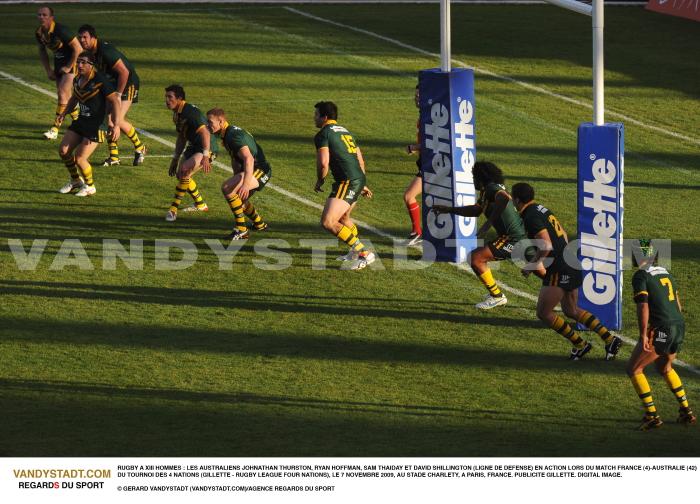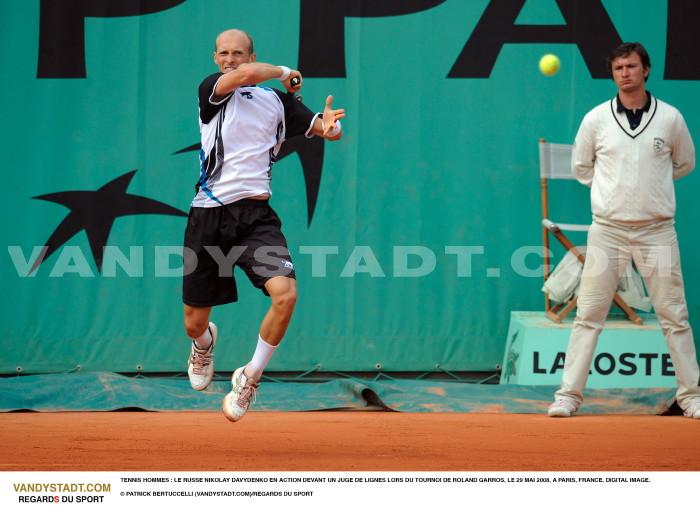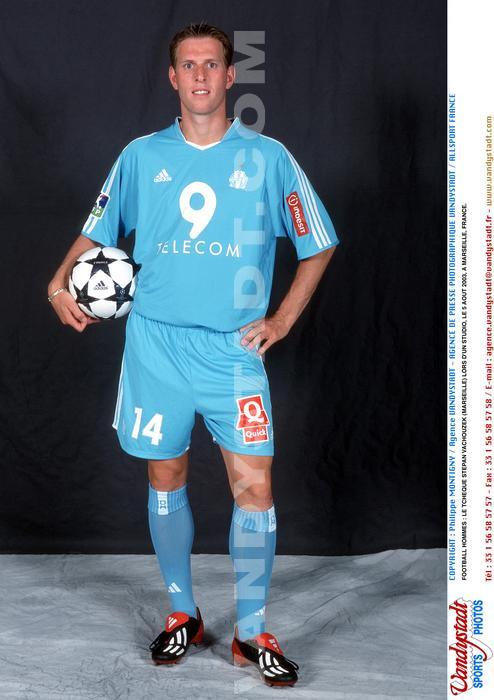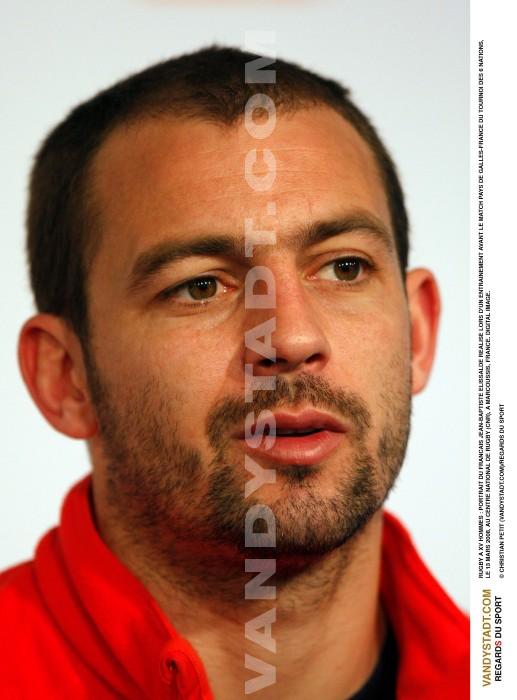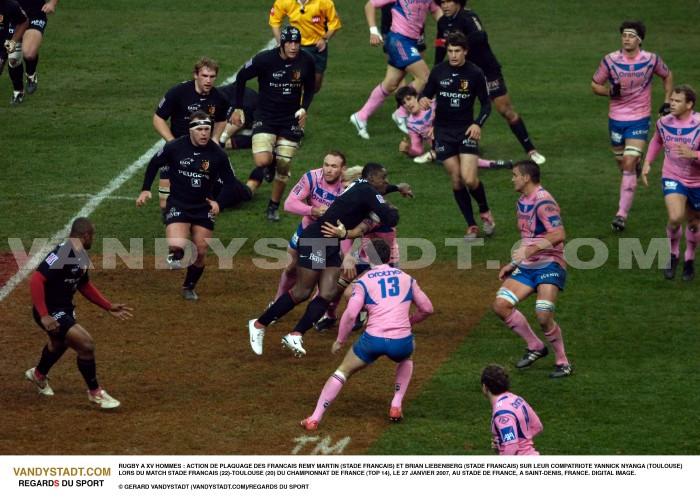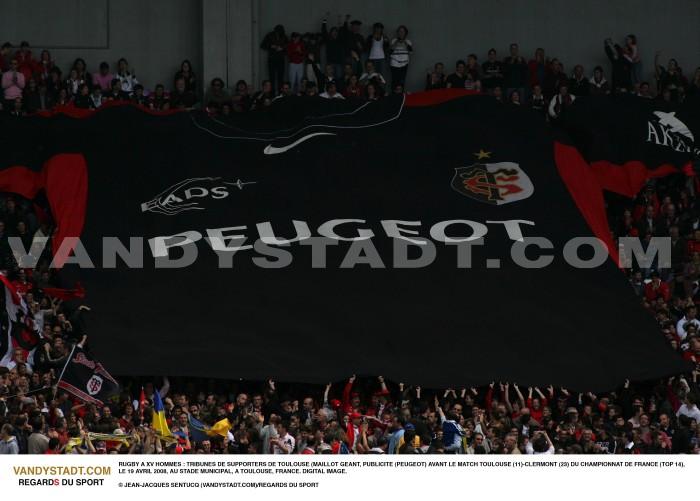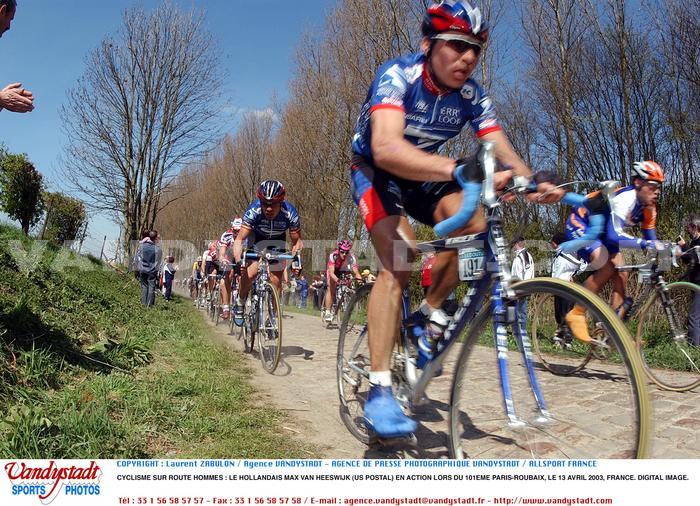Cyclisme - Cycling history
Cycling - Olympic Sports
![]()
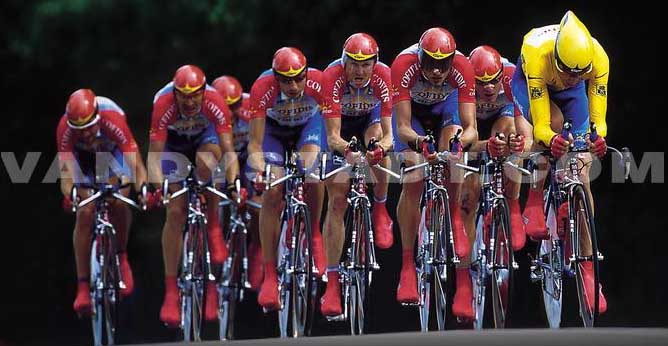
The history of cycling began with the invention of the bicycle.
The German Baron Karl Friedrich von Drais (1785-1851) invented the "Draisienne", the ancestor of the bicycle in 1816. He presented his invention, a machine to run 22 kg propelled with the feet, in Paris April 5, 1818. The front wheel was taller and bigger than the rear wheel, driving the machine was dangerous and difficult.
Key Dates
- 1839, Kirkpatrick McMillan, a Scottish blacksmith, invented the two-wheel propulsion mechanism with pedals and cranks. Before, bicycles should be pushed with the foot, which severely limits their athletic ability.
- 1861, bodybuilders Michaux brothers, Pierre and Ernest, invented the bicycle drive straight out of the pedals on the front wheel, measuring 1.20m in diameter, Draisienne.
- 1866 the first patent velocipede (transmission chain and the invention of the tire) was filed in Washington by the French Pierre Lallement. Two years later, the first cycling clubs were founded: the swift Clubs Rouen, Paris, Toulouse.
- 1880, the chain made its appearance with the Englishman James K. Starley and rear wheel drive becomes.
A little later, the creation of the Union of France bicycle, February 6, 1881 in Paris, recognized as a public utility.
- 1885, Englishman James Starley invented the modern transmission (chain and sprockets) which unifies the wheel size.
- 1870, Premier Club based in Italy, Fiorentina Veloce Club.
- 1871 first club in the Netherlands, the Deventer Velocipede Club
- 1888, the tire is emerging thanks to the Scotsman John Boyd Dunlop.
- 1881, founding of the Union Vélocipédique of France who became in 1945 the French Cycling Federation.
- 1891, Edouard Michelin invented the detachable tire.
- 1895, the first velodrome.
- 1896, cycling became an Olympic sport. Six trials are included in the program whose 10 km, 100 km and run 12 hours on the road.
- 1900, the International Cycling Union is founded and organized the European championships.
- 1910, the freewheel makes its appearance on the Tour deFrance, in 1937, to derail the team. However, five tourists were already using the road.
.jpeg)
Highlights
- The first cycling race took place in 1865 between Paris and Avignon, and was won by brothers Olivier in 8 days.
- The first bicycle race was held in Paris in 1869 between Paris and St Cloud for a distance of 1200 m. The race was won by Englishman James Moore .
- The first points race took place between Paris and Rouen on 140 km.
- First Six Days are run at Madison Square Garden in New York in 1878.
- The first track races held in 1880.
- The first record of a half mile as established in 1886 by the American black, George Hendee.
- The first TOUR DE FRANCE took place in 1903, won by Maurice Garin .
- The first world championship amateur road was organized in 1921 and won by the Danish Skjold Gunnar.
- The first World Championship road professional in 1927 won by Alfredo Binda ITA.
- The first women's championship (a sprint) was organized in 1958 won by the Soviet Union Galina Ermolaeva .
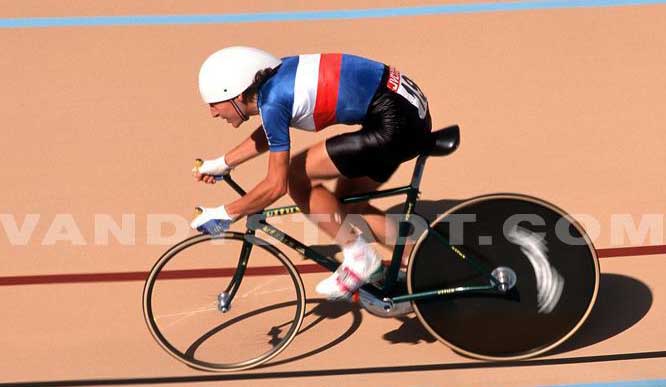
The International Federation of Cycling amateur was founded in 1900 by members of the French, Belgian and Italian, Swiss and American. In 1993 it merged with the International Federation of Professional Cycling to become the International Cycling Union (UCI). It has 189 member countries.
The Presidents of the UCI
Emile de Beukelaer ISL (1900-1922), Leo Breton FRA (1922-1936), Max SUI Burgi (1936-1939), Alban Collignon ISL (1939-1947), Achille Joinard FRA (1947-1958), Adriano Rodoni ITA ( 1958-1981), Luis Puig ESP (1981-1990), Hein Verbruggen HOL (1991-2005) and since 2005, Pat McQuaid IRL.
Cycling in France is 101 915 with 72 471 licensed traditional option route, track, cyclo-cross, mountain biking option 17 848, 10 624 Option BMX, 2575 clubs and 12 607 competitions! It is also 21 million bicycles (used or not) including ATV (32.4%), the city bikes (32.4%), bicycle racing (21.2%), road bikes ( 9.7%).
Cycling and Olympism
The Olympic program includes road races, track and mountain biking. The first bicycle race was held on Olympic trail marathon games of 1896. The cyclists were doing two laps of 87 km. The women's cycling made its Olympic debut in 1984.
Since 1996 the professional riders are allowed in the cycling events of the Olympic Games.
French cyclists have won a total of 78 Olympic medals since 1896 including: 38 gold, 20 silver and 20 bronze. Cycling takes second place behind the fencing.
Did you know that Dean World Olympians is the French cyclist Roger Beaufrand (25-9-1908), Olympic champion speed track in 1928. That year he also won the world title.
Two women cyclists have been Olympic medalists in summer and winter:
- Christa Rothenburger of Germany in 1988 and speed skating speed (500 m in 1984 and 1992, 1000 m in 1988). It is also the only sports medal that year at the Olympic Winter and Summer in 1988.
- Canada's Clara Hughes , road race and TT in 1996, and speed skating (5000 m in 2002).
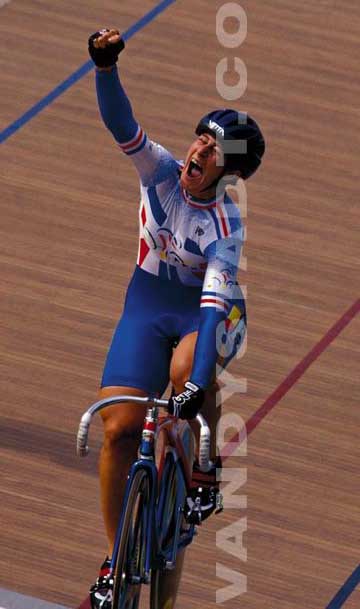
Backpackers legend
Jacques Anquetil (1934-1987) FRA. In 19 years of career, he won including 5 Tours de France (1957, 61, 62, 63 and 64), 5 Paris-Nice (1957, 61, 63, 65 and 66), 9 Grand Prix of Nations (1953 to 1958, 61, 65 and 66), 2 Tours of Italy (1960 64), the Tour of Spain in 1963, Bordeaux-Paris in 1965, 4 SuperLuxury. 16 stage victories and 52 days in yellow during the Tour. 204 victories in total counting criterium. World record of 46.159 kilometers hour and 20 km with 25'57 "40 in 1956. One of the greatest cyclists of all time called 'Master Jacques'.
Gino Bartali (1914-2000) ITA. A mythical rider nicknamed "Gino the Pious'. Italian champion in 1935, 1937, 1940 and 1952. Winner of Milan-San Remo in 1939, 1940, 1947, 1950, the Tour of Lombardy in 1936, 1939, 1940, the Tour of Switzerland in 1946 and 1947, the Tour de Romandie in 1949 Giro d'Italia in 1936 1937, 1946 (17 stage wins) and the TOUR DE FRANCE in 1938 and ten years later, in 1948 (12 steps). He wore the yellow jersey 23 times and the Giro's pink jersey 50 times! 91victoires total.
Alfredo Binda (1902-1986) ITA. One of the greatest Italian cyclists nicknamed 'La Gioconda' (114 wins). World Champion in 1927, 1930 and 1932 and Champion of Italy from 1926 to 1929. He won Milan-San Remo in 1929 and 1931, the Tour of Italy in 1925, 27, 28, 29 and 33 (41 stage victories including 12 in 1927 and in 1930 he received a bonus for not running the Giro because he is too strong), the Tour of Lombardy from 1925 to 1927 and 1931 and 2 stages Tour deFrance. World record of 10, 20 and 50 km.
Fausto Coppi (1919-1960) ITA. One of the greatest figures of world cycling called 'the Campionissimo' (95 victories). World Champion on the road in 1953 (3rd in 1949), tracking pro in 1947 and 1949. Italian champion in 1942, 1947, 1949 and 1955. Recordman hour with 45.848 kilometers in 1942. Winner including the Tour of Italy in 1940, 1947, 1949, 1952 and 1953 (2nd in 1946, 22 stages and best climber in 1948, 49 and 54), the TOUR DE FRANCE in 1949 and 1952 (9 steps, best climber in 1949 and 52), Milan-San Remo in 1946, 1948 and 1949, the Grand Prix of Nations in 1946 and 1947, the PARIS-ROUBAIX and FLECHE WALLONNE in 1950 and 5 Tours of Lombardy (1946, 1947, 1948, 1949 and 1954).
Felice Gimondi (29-9-42) ITA. Tour de l'Avenir among fans in 1964. Italian Champion pro road in 1968 and 1972. Winner of the Tour of Spain in 1968, France in 1965 (7 stages) and Italy in 1967, 1969 and 1976 (2 times 2nd, 4 times 3rd, 5 steps). World Champion pro road in 1973 (2nd in 1971, 3rd in 1970). Among his other victories: PARIS-ROUBAIX in 1966, Paris-Brussels in 1966 and 1976, the Tour of Lombardy in 1966 and 1973, the GP of Nations in 1967 and 1968, Milan-San Remo in 1974 and a stage of the Vuelta. 60 victories.
Bernard Hinault (14-11-54) FRA. One of the greatest cyclists of all time and winner of the Super Prestige Pernod from 1979 to 1982. Champion of France of pursuing an amateur in 1974, pro in 1975 and 1976 and pro road in 1978. World Champion in 1980 (3rd in 1981). He has won 5 times TOUR DE FRANCE (1978, 1979, 1981, 1982, 1985, 2nd in 1984 and 1986, won the points classification in 1978, the best climber in 1986, 28 steps and 79 days in yellow), 3 times Tour of Italy (1980, 1982, 1985, 6 steps), 2 times the Tour of Spain (1978 and 1983, 7 steps), 2 times LIEGE-BASTOGNE-LIEGE (1977 and 1980), 2 times the Tour de Lombardy (1979 and 1984), 5 times the Grand Prix of Nations (1977, 1978, 1979, 1982, 1984), 3 times the Dauphiné-Libéré (1977, 1979 and 1981), 2 times the Flèche Wallonne (1979 and 1983) , 1 time PARIS-ROUBAIX (1981), theAMSTEL GOLD RACE (1981) and Gent-Wevelgem (1977). 217 total victories (144 out criterium). Nicknamed "The Badger".
Miguel Indurain (16-7-64) ESP. Winner of Paris-Nice in 1989 and 1990, the TOUR DE FRANCE from 1991 to 1995 (12 stages, 60 days in yellow), the Giro in 1992 and 1993 (4 stages, 29 days in pink), the championship of Spain 1992, the Classica San Sebastian in 1990, the Dauphine Libere in 1995 and 1996. World Champion in 1995 and Olympic champion in 1996 against the clock. Vice world champion on road in 1993 and 1995. N ° 1 worldwide from June 1992 to June 1994. Former record holder of the hour (53.040 kilometers). 97 victories including 42 TT
Championnat de Belgique en 2000 (3e des J.O.2004 et 4e du championnat du monde en 1996) ainsi qu?une étape du Tour d?Italie. 9 victoires." style="display: inline;"> Eddy Merckx Championnat de Belgique en 2000 (3e des J.O.2004 et 4e du championnat du monde en 1996) ainsi qu?une étape du Tour d?Italie. 9 victoires." style="display: inline;">(17-6-45) ISL. He won 333 races on road world champion on road in 1967, 1971 and 74 Belgian champion in 1970, won 5 Tours de France (record holder for wins stage, 34; record holder wearing the yellow jersey, 111 days; 3 times green jersey and 2 times better climber), 5 Tours of Italy (25 steps, 2 times better sprinter), 7 Milan-San Remo (1966, 1967, 1969, 1971, 1972, 1975 and 1976), 5 LIEGE-BASTOGNE-LIEGE (1969, 1971, 1972, 1973 and 1975), 3 Championnat de Belgique en 2000 (3e des J.O.2004 et 4e du championnat du monde en 1996) ainsi qu?une étape du Tour d?Italie. 9 victoires." style="display: inline;">PARIS-ROUBAIXChampionnat de Belgique en 2000 (3e des J.O.2004 et 4e du championnat du monde en 1996) ainsi qu?une étape du Tour d?Italie. 9 victoires." style="display: inline;"> (1968, 1970 and 1973), 3 Championnat de Belgique en 2000 (3e des J.O.2004 et 4e du championnat du monde en 1996) ainsi qu?une étape du Tour d?Italie. 9 victoires." style="display: inline;">Paris-NiceChampionnat de Belgique en 2000 (3e des J.O.2004 et 4e du championnat du monde en 1996) ainsi qu?une étape du Tour d?Italie. 9 victoires." style="display: inline;"> (1969 to 1971), 3 Championnat de Belgique en 2000 (3e des J.O.2004 et 4e du championnat du monde en 1996) ainsi qu?une étape du Tour d?Italie. 9 victoires." style="display: inline;">Ghent-WevelgemChampionnat de Belgique en 2000 (3e des J.O.2004 et 4e du championnat du monde en 1996) ainsi qu?une étape du Tour d?Italie. 9 victoires." style="display: inline;"> (1967, 1970 and 1973), 3 Flèche Wallonne (1967, 1970 and 1972), 2 Tours of Lombardy (1971 and 1972), 2 Championnat de Belgique en 2000 (3e des J.O.2004 et 4e du championnat du monde en 1996) ainsi qu?une étape du Tour d?Italie. 9 victoires." style="display: inline;">Tour of FlandersChampionnat de Belgique en 2000 (3e des J.O.2004 et 4e du championnat du monde en 1996) ainsi qu?une étape du Tour d?Italie. 9 victoires." style="display: inline;"> (1969 and 1975), 2 Championnat de Belgique en 2000 (3e des J.O.2004 et 4e du championnat du monde en 1996) ainsi qu?une étape du Tour d?Italie. 9 victoires." style="display: inline;">AMSTEL GOLD RACEChampionnat de Belgique en 2000 (3e des J.O.2004 et 4e du championnat du monde en 1996) ainsi qu?une étape du Tour d?Italie. 9 victoires." style="display: inline;"> (1973 and 1975), 2 Het Volk (1971 and 1973), a Tour of Spain (1973, 6 stages and best sprinter), a Dauphiné Libéré (1971), a Championnat de Belgique en 2000 (3e des J.O.2004 et 4e du championnat du monde en 1996) ainsi qu?une étape du Tour d?Italie. 9 victoires." style="display: inline;">Paris-BrusselsChampionnat de Belgique en 2000 (3e des J.O.2004 et 4e du championnat du monde en 1996) ainsi qu?une étape du Tour d?Italie. 9 victoires." style="display: inline;"> (1973) and a Championnat de Belgique en 2000 (3e des J.O.2004 et 4e du championnat du monde en 1996) ainsi qu?une étape du Tour d?Italie. 9 victoires." style="display: inline;">Tour SwitzerlandChampionnat de Belgique en 2000 (3e des J.O.2004 et 4e du championnat du monde en 1996) ainsi qu?une étape du Tour d?Italie. 9 victoires." style="display: inline;"> (1974). World record for time in Mexico (49.431 kilometers) in 1972. The greatest cyclist of all time: winning the Super Prestige Pernod-1969 to 1975. World Amateur Champion in 1964. Voted best sporting world in 1969, 1971 and 1974 (nicknamed "The Cannibal"). His son Axel (8-8-72) has won the Championnat de Belgique en 2000 (3e des J.O.2004 et 4e du championnat du monde en 1996) ainsi qu?une étape du Tour d?Italie. 9 victoires." style="display: inline;">Belgian ChampionshipChampionnat de Belgique en 2000 (3e des J.O.2004 et 4e du championnat du monde en 1996) ainsi qu?une étape du Tour d?Italie. 9 victoires." style="display: inline;"> in 2000 (3rd and 4th of JO2004 world championship in 1996) and a stage of the Tour of Italy. 9 wins.
Francesco Moser (19-6-51) ITA. A copy of career from 1973 to 1988 with 158 off criterium races won (194 won in total). World Champion pro road in 1977 (2nd in 1976 and 1978) and continued in 1976. Winner of the Tour of Italy in 1984 (2nd in 1977, 1979 and 1985, 3rd in 1978 and 1986, 23 steps, winner of the ranking points from 1976 to 1978 and 1982), PARIS-ROUBAIX in 1978.1979 and 1980 , the Tour of Lombardy in 1975 and 1978, the Paris-Tours in 1974, the Flèche Wallonne in 1977, Ghent-Wevelgem in 1979, Milan-San Remo in 1984, 2 stages of the Tour and Vuelta. Italian champion in 1975, 1979 and 1981. Winner of the Super Prestige Pernod in 1978. He was owner of most world records of the time on indoor track (50.644 kilometers in 1988), open air sea level (48.543 kilometers in 1986 and 49.801 kilometers) and altitude (50.808 kilometers and 51.151 kilometers ).
Road Tests
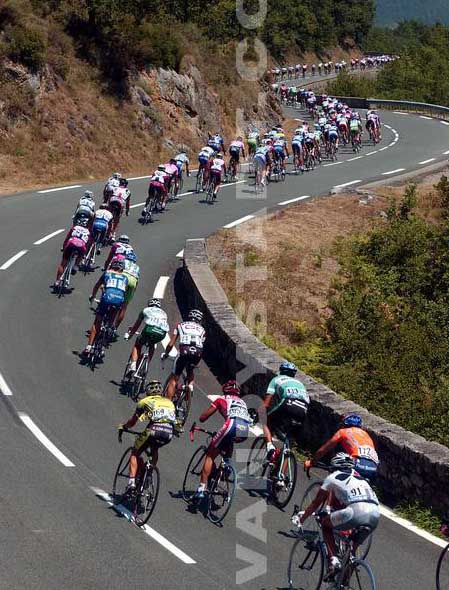
The main road races:
The racing circuit or Criterium
Including the world championships held since 1927 for men and since 1958 for women. Runners carry a certain number of turns defined in a closed circuit.
The racing classic
Created in the early 20th century, are racing from town to town made online. They are held once a year on a single day with a route determined in advance. Examples: PARIS-ROUBAIX, approx. 270 km, LIEGE-BASTOGNE-LIEGE, the oldest founded in 1893, approx. 265 km.
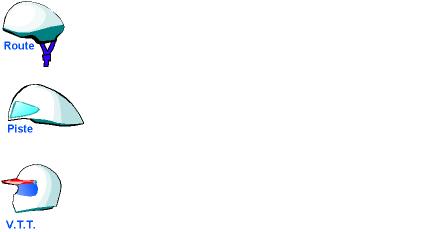
The cons-trial in
ou par équipes de 4 à 9 coureurs. Départ séparé toutes les minutes ou deux (4 minutes pour les équipes), les cyclistes doivent parcourir le plus vite possible un parcours en circuit ou en ligne. La vitesse peut atteindre les 50 km/h.
Great towers
On varied terrain (mountains, flat) over 2 to 22 days in stages (2 to 22). The ranking is determined by adding time on one day. The winner is the cyclist who has the least time to complete these steps. Examples: the Tour deFrance, Spain or Italy. The steps daily mileage can not exceed 260 km and the average over the number of racing days is required to be 180 km.
The prologues of stage races do not count as days of racing provided you have less than 8 km. In stage races occupying maximum 10 days of effective stroke, there can be more than 4 half steps. In those over 10 days, there can be more than 6. In events in stages with at least 10 days of effective stroke, days of rest may be provided.
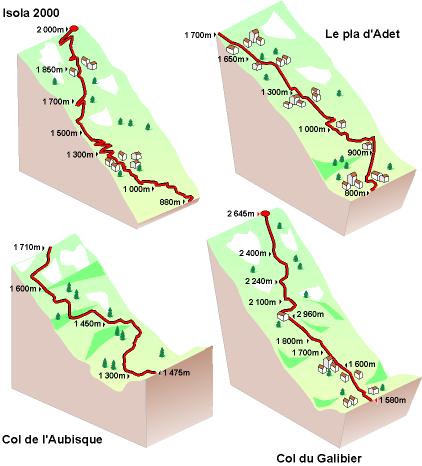
The TOUR DE FRANCE and Tour of Italy Courrent a maximum of 4 000 km Tour of Spain on a maximum of 3400 km, the Tour of Portugal on a maximum of 2 800 km, the Tour of Switzerland on a maximum of 1 600 km.
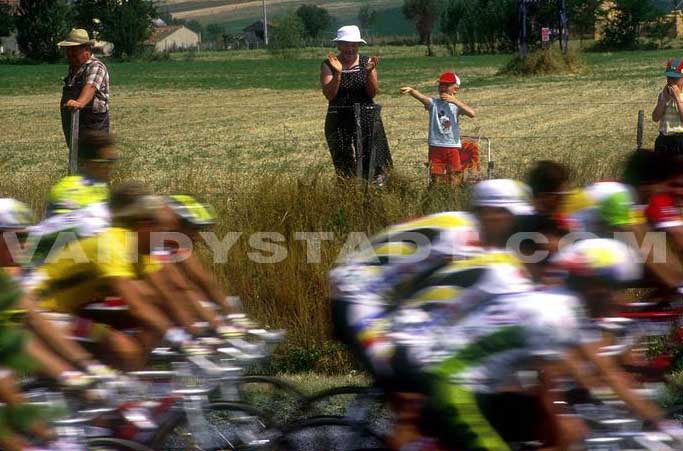
Track events
Cyclists turn around an oval track whose corners are angled at 42 degrees.
The first race on a closed timber took place in 1868 in Saint-Cloud on the distances of 1.5 and 10 km.
Approved since 2000, the track has three lengths: 250 m short track, 333.33 m and 400 m long track. The width between 7 and 9 m.
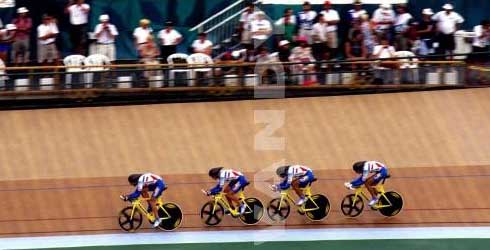
There are two types of races: the endurance events over distances ranging from 3 to 60 km and the speed events from 500 m to 2 km.
Disciplines
Speed in
iduelle (H / D) - Team sprint (H) - Kilometer against time (H) - 500 yards against time (D) - Tandem (H) - Continued in
iduelle (men: 4 km - Women: 3 km) - Olympic Pursuit (H) - Points Race (H / D) - American (H) - Keirin (H) - Half-back (H) - Elimination (H) -- Open (H) - Les Six Days
La France has 100 velodromes with 4 covered.
Records Track World
Men
- Check launched: 200 m, 500 m, 1 km.
- Check Order: 500m, 1 km, 4 km, hours, 4 000 m Team.
Ladies
- Check launched: 200 m, 500 m
- Check Order: 500m, 1 km, 3 km per hour.
The records must be timed, turn-based, electronically 1000th of a second. Olympic Games, world championships, national championships or regional records can be stored on the distances of 1 km and 500 m against time and prosecutions in
iduelles and team riders when 2 or 2 teams opposed the departure of the two sides of the runway.
On all other distances, and for the record attempts outside the official championship, the rider or team must be alone on the track.
The main rules
Each race has its own rules in track events:
The Race Points
This is a test of endurance in
iduelle of 40 km for men and 24 km for women. Anyone who has traveled the greatest distance in full turns is the winner. A Tour is conducted or when the riders reach the tail of the main pack. Those who finish in the same Tour, get extra points earned at the intermediate sprints (every 2500 m) Example: 5 pts for 1st, 3rd to 2nd, etc.. There is a tiebreaker in the number of points accumulated in a tie the number of Tours.
Run Speed
It's an event that runs two and 2 races for 2 laps on the tracks over 333.33 m and 3 Tours for tracks 333.33 m or less. The sprint takes place over the last 200 meters which are timed.
Kilometer or against the clock
This is a speed test that is run in
iduellement of 1000 m against the clock with a standing start. The women's 500 is entered at the world championships since 1995.
Tandem
It's a race that takes place over 1,500 m.
.jpeg)
Half-back
This is an endurance race that takes place behind a motor coach for a specified distance ranging from 30 to 50 km or a time-limited to one hour.
In Pursuit
Two runners must try to reach a distance of 4 km for men and 3 km for women. They are placed in the middle of straight lines to the rope. The winners of each series will go in 1 / 4 finals, 1 / 2 finals and final.
Olympic Continuation
It is a men's event by 2 teams of 4 riders are placed in the middle of straight lines.
The distance is 4 km. The winners of each round are qualified for the next round, 1 / 4 finals, etc.. Time is taken on the 3rd runner.
.jpeg)
, Madison
Contested for the first time at Madison Square Garden in New York, the race is also called 'Madison'. A relay race between several teams of two runners for a distance of 20 to 60 km. During a time limit, teams must make the greatest number of laps.
Keirin
Male endurance test between 9 riders for a distance of 2 km (5 laps). Initially cyclists stick close to a motorcycle (or derny) which indicates the pace of the race for 3 laps. The riders begin the sprint when the bike departs. Speeds can exceed 60 km / h.
Les Six Days
Established in 1878 in England, is a male endurance test. The runners run on the track for six days.
Mountain biking (MTB) and Mountain Bike
The bike is a transformation of a bicycle to slide down hills.
Born in the early 1970s in California, mountain biking takes place on dirt roads. Riders must cross many hurdles natural downhill or uphill. At that time the bike to bike like 30 years (having balloon tires and a single speed), have a handlebar and wider tires (48 to 53 mm in cross, 63 to 76 mm in descent) that racing bikes.
In 1974, American Gary Fisher, intrigued by these bikes, decided to tinker a copy, lighter, has multiple speeds, derailleurs, handlebars right, wide tires and brakes resistant. The first prototype of a bike is born. In 1979, he founded the Mountain Bike 'producing bikes designed for climbs and descents. The first bike with hydraulic suspensions was initiated in 1990, also by Gary Fisher.
The first competitions were organized by the Velo Club Mount Tamalpais in San Francisco. The pioneers of the club have invented the 'Repack Downhill' raid near the Golden Gate Bridge, which took place regularly between 1976 and 1979. Riders must cross many hurdles natural downhill or uphill.
Biking disciplines are descending, the Cross Country, 4 Cross and the marathon. Recognized by the Union Cycliste Internationale in 1990, the test of cross country (distance: 40/50 km for men and 30/40 km for women) made its Olympic debut in 1996.
Cross Country (XC)
It's an endurance test line on a hilly course by 25 to 40 km which takes place over one day. Duration: 2 hours 15 for men cons 2 hours for women. In WorldCup, the race takes place in closed circuit 6 to 8 km.
Downhill (Or DH Downhill)
It is a sprint event which takes place in two sets. Riders must dismount as soon as a slope in passing many natural obstacles. Course Length: 2 to 5 km. Elevation: 400 m minimum.
In downhill, mountain bike riders can reach top speeds of 90 mph!
Four Cross (4X )
A race between four competitors on a very short descent.
Trial
This discipline focuses on balance and failing. The course must be done by asking the minimum number of times a foot down.
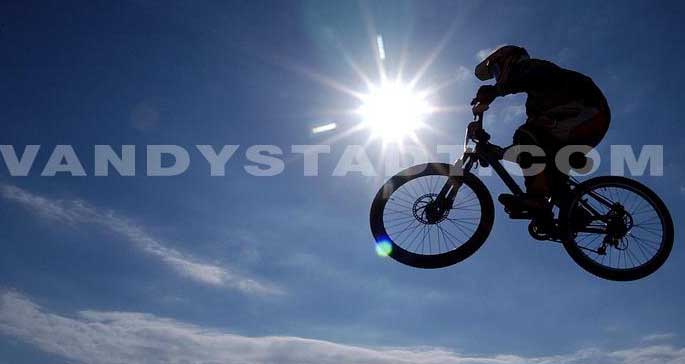
Namely:
The Polo do not play with horses! The Bicycle polo was invented in Ireland in 1891. The first demonstration took place at the Moulin Rouge in France in 1898. This was especially the first demonstration sport at the Olympics in 1908 in London. The bicycle polo is a sport where two teams of 5 players to bike (even a goalkeeper!) Will compete in a game of two periods of 30 minutes each. Each team tries to score as many goals as his opponent (1 goal = 1 point) on a field whose dimensions are close to those of a football field. Only the referee is on foot. This discipline has been recognized since 2002 by the Union Cycliste Internationale.
Cyclo-cross
Departure: on a road wide enough and preferably comprising a straight line from 800 to 1000 meters (if possible) before the first difficulty.
Course: provide for the collision of the first difficulty and therefore the term itself a wide enough entrance and tapering gradually to the fullest extent possible.
Arrival: arrival (such as departure) must always be located on the road.
During the official tests, the circuit should not be less than 3 km. Wearing a safety helmet is rigid mandatory for all riders during competitions or workouts on track.
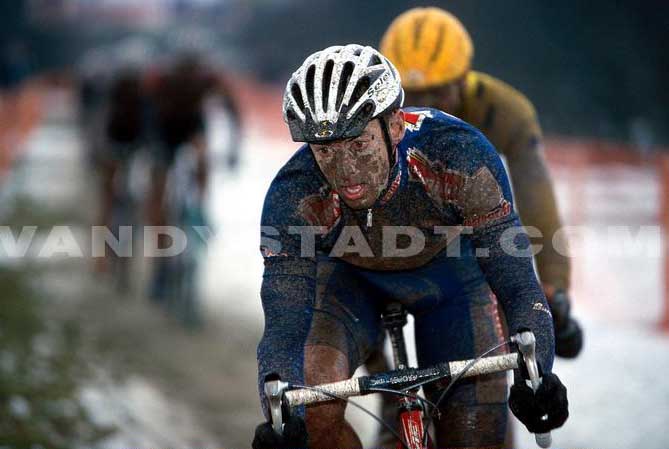
The largest gathering of mountain biking in the world is the Roc d'Azur Fréjus. The 21st edition in 2004 attracted some 13 000 runners among the world elite. Winners: Miguel Martinez males and Canada's Alison Sydor in women.
BMX
The Bicycle Moto Cross was born in California in the 70s. Inspired by motocross, it is between the bike and the bike and was formerly practiced on small tracks of "motocross".
As part of the French Cycling Federation since 1990, BMX in France is about 7 000 licensees, 250 clubs, 350 permanent and 50 tracks mogul fields.
The BMX bike has a single rear brake, a simple shelf, a gear 44 x 16. The name refers to the 20 inch size frame and wheel.
The BMX races are held on circuits of around 350 meters, including jumps, banked corners and other obstacles. Each heat (qualifying rounds, quarterfinals, semifinals and finals), eight riders compete with the top four qualified for the next round.
In April 1981, the International BMX Federation was founded, and the first World Championships were held in 1982. BMX has grown rapidly as a sport in its own right, and after several years clearly had more in common with cycling than motorcycling codes. Since January 1993 BMX has been fully integrated into the Union Cycliste Internationale.
The BMX freestyle or "free style" practiced in a skate-park, was invented by American Bob Haro. It develops in the 90s through the organization of the X-games in the United States. Other disciplines such develop the "street" ride in the street, jumping the sidewalk using urban infrastructure such as stair railings or benches, the "trail / dirt" for those who like to make faces, bumps and jumps in BMX in the campaign, the "flat" (flat) to make figures on the ground without stopping or putting his feet on the ground, the "green", the rider operates on a half-pipe in the skate - parks by combining figures aerials.
BMX became an Olympic sport in 2008.
Among the best riders in the professional world circuit include the American virtuoso Dave Mirra (4-4-74), eleven times winner of the Summer X games (games extreme) since 1996 and Green Street, the legendary American Matt Hoffman (1-9-72), ten times world champion green Mirron Canadian Jay (3-10-70), a specialist in dirt and street and the American Trevor Meyer (20-3-72), Triple winner of the X games in flat. The French Jumelin Alex (23-11-77) is the French specialist of flatland without forgetting Christophe Leveque (11-2-73), champion of the world elite in 1991 and 1995.
The world champions lights: Christelle Le Saut in 1992, Sabine Caballe in 1995, Audrey in 1999 and Pichol Elodie Ajinca in 2003.
Trial
Discipline recent focus on the ability of the rider (not speed), which takes place on a hilly circuit and slope, cut into zones, or outdoors (road, path, woodland) in a stadium. The competitor must navigate each area without ever setting foot on land. It uses two types of wheels: "20 inches" and "26 inches". A world championship takes place each category since 1992 for 20 inches and from 1996 for 26 inches.
Copyright Sportquick/Promedi








